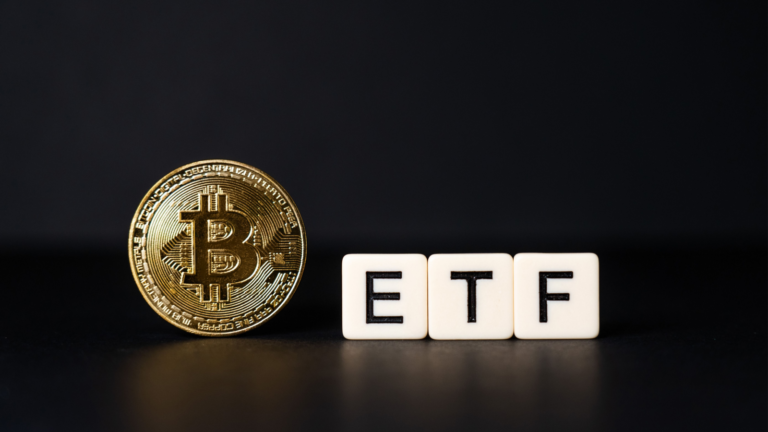With the volatility oil the crypto sector, many investors now opt for exchange-traded funds (ETFs) to make a more diversified portfolio at a lower cost (and with some tax advantages). The recent approval of spot Bitcoin (BTC-USD) ETFs has allowed investors who may otherwise not have been able to trade these assets on-chain to jump into the fray. That surge in capital has led to rising Bitcoin prices, as the token’s limited supply continues to be bought up.
Bitcoin has surged past $72,000, following last week’s record-breaking streak. Other mega-cap tokens are also on the rise, bolstered by Bitcoin’s recent move. Thus, this will remain the top token investors continue to focus on as representative of the health of sentiment in this sector.
Let’s dive into what beginner investors may want to know about these ETF products.
What Is a Spot Bitcoin ETF?
Bitcoin futures ETFs on conventional exchanges pool Bitcoin-related assets for trading, providing investors exposure without direct ownership. Unlike traditional ETFs, Bitcoin ETFs hold Bitcoin or correlated assets, while futures ETFs hold futures contracts predicting Bitcoin’s future price over a period of time. A spot Bitcoin ETF exclusively holds Bitcoin.
Such ETFs are publicly traded investment funds, offering exposure to Bitcoin without having to set up a wallet and go on the blockchain to buy it. These ETFs trade on traditional stock exchanges like the NYSE and Nasdaq, unlike crypto exchanges. Investors buy shares in a fund holding Bitcoin, simplifying investment without requiring direct cryptocurrency ownership. That regulated vehicle eases access to Bitcoin’s price movements, removing crypto investment complexities.
Bitcoin ETFs like the ProShares Bitcoin Strategy ETF (NYSEARCA:BITO) offer investors a way to invest in Bitcoin without using cryptocurrency exchanges, providing direct price exposure. On the other hand, futures ETFs enable investors to hedge against market volatility by securing the ability to buy or sell a specific cryptocurrency at a predetermined price. Both ETF types track the price of an underlying asset or index, but spot ETFs allow investors to gain direct exposure to the asset itself, with less price volatility.
Advantages and disadvantages of Bitcoin ETFs
Investing in a Bitcoin ETF provides exposure to Bitcoin’s price without the complexities of cryptocurrency exchanges or the risk of direct ownership. ETFs offer accessibility, allowing investors to avoid concerns like losing wallet passwords. Additionally, ETFs enable portfolio diversification by combining various securities and are regulated by the SEC, offering potential tax efficiency.
Multiple Bitcoin ETFs typically come with high management fees, but the SEC’s approval of various spot Bitcoin ETFs triggered competition among issuers, resulting in lower fees for investors. Unlike existing crypto funds with costs ranging from 2% to 3%, spot Bitcoin ETFs, like Bitwise’s, offer reduced fees, potentially as low as 0.20%, enhancing market appeal.
However, ETFs’ multiple holdings may cause price inaccuracies with BTC’s fluctuations. While ETFs track BTC prices, they don’t offer the decentralization benefits of direct cryptocurrency ownership.
Types of Bitcoin ETFs
Not all Bitcoin ETFs are alike, as they vary based on their underlying assets. The two main types are Bitcoin futures ETFs and spot Bitcoin ETFs. Before January 2024, the U.S. market primarily offered Bitcoin futures ETFs, which invest in futures contracts rather than the actual asset. These ETFs involve higher fees and volatility and are more suitable for experienced investors familiar with futures contract intricacies, including rollover fees incurred during continuous contract renewal.
Spot Bitcoin ETFs, approved by the SEC in January 2024, offer direct exposure to Bitcoin by holding actual Bitcoin, making them a straightforward investment option for those interested in the cryptocurrency’s price movements. Managed by trusted custodians, these ETFs aim to mirror the real-time value of Bitcoin.
While spot ETFs may allow shareholders to redeem their shares for Bitcoin, investors should consider their preferences and risk tolerance when choosing between futures and spot Bitcoin ETFs.
How Spot Bitcoin ETFs Work
A spot ETF directly holds Bitcoin, its value reflecting the current market price. Investors purchasing shares in a spot Bitcoin ETF acquire a portion of the fund’s Bitcoin assets, tradable on traditional stock exchanges like any other stock or ETF. This simplifies the process for investors, eliminating the complexities of buying, storing and securing Bitcoin directly.
Unlike direct cryptocurrency investments, spot ETFs offer regulatory oversight and investor protection. Conversely, Bitcoin futures ETFs, regulated by the Commodity Futures Trading Commission, are favored due to their significant trading volumes, providing a notable platform for price discovery.
Spot BTC ETFs were introduced in Canada, including significant funds like Purpose Bitcoin, 3iQ CoinShares and CI Galaxy Bitcoin, all directly invested in spot Bitcoin. Furthermore, the 21Shares Bitcoin exchange-traded products, entirely exposed to spot BTC, were listed on various German and Swiss exchanges, managing assets of about $500 million.
The SEC’s approval of 11 spot Bitcoin ETFs on Jan. 11, 2024, marked a milestone in cryptocurrency investing, following previous unsuccessful attempts due to concerns about the unregulated Bitcoin market’s susceptibility to manipulation, posing risks to investors.
Bottom Line
Bitcoin ETFs offer investors a compromise between the fast-paced crypto market and traditional investments. Trading these ETFs via brokerage accounts mirrors the simplicity of stock trading. With SEC approval, they serve as a regulated gateway to crypto for a broader investor base, yet challenges persist as regulators balance innovation and safeguarding investors.
Competition among ETF providers may intensify, fostering more diverse and affordable products and expanding Bitcoin’s reach in mainstream portfolios despite ongoing cryptocurrency market complexities.
On the date of publication, Chris MacDonald did not hold (either directly or indirectly) any positions in the securities mentioned in this article. The opinions expressed in this article are those of the writer, subject to the InvestorPlace.com Publishing Guidelines.

